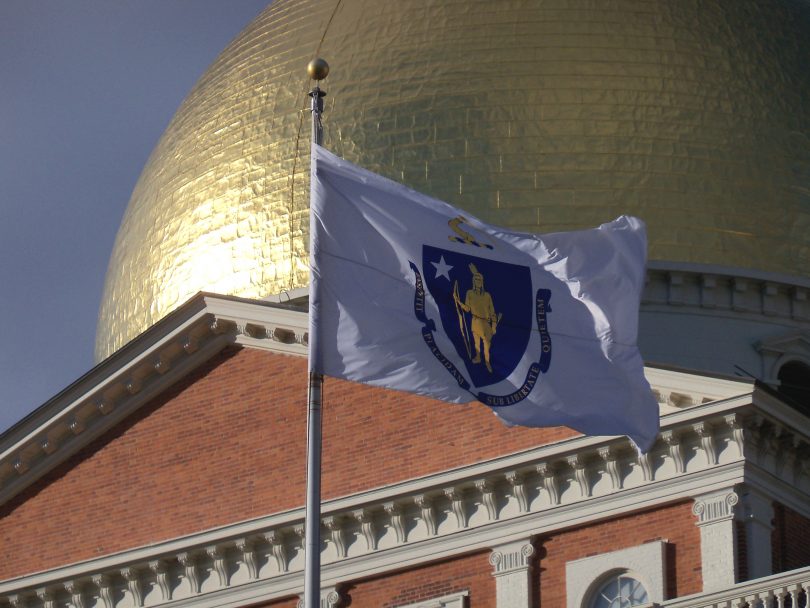By Chloe Liu
Boston University Statehouse Program
BOSTON – Massachusetts lawmakers have finally moved along a compromise investment package of state surplus revenues and federal American Rescue Plan Act aid, but some recipients are realizing that they will be getting less than they had expected.
The Senate accepted the $4 billion spending bill, H. 4269, in an informal session on Dec. 3, a day after the House, without debate. The package includes funding for housing, health care, and low-income essential workers, among other initiatives.
The compromise bill also included $135 million designated for the arts, culture and tourism sector through Massachusetts Cultural Council grants. The House had recommended a $125 million for arts and culture recovery funds and the Senate recommended $75 million.
But a closer look reveals the MCC will only receive $60 million for arts and cultural relief. The other $75 million will be distributed among 120 earmarks, where funding has already been directed for a specific recipient. While some of the smaller earmarks will be going to local arts and culture initiatives, the biggest earmark, $50 million, is transferred to the MBTA “for economic development improvements to transit stations in Norfolk county.”
Legislative spokespeople were either unavailable or declined comment.
MCC executive director Michael Bobbitt said that there was a general surprise from the agency, first at the supposed $135 million and then once again after realizing that many were going to earmarks.
“We’re sort of neutral on earmarks,” Bobbitt said, “but we wouldn’t know that there is a large majority of earmarks in this account that are not necessarily related to our mission or relief for the cultural sector.”
Massachusetts Taxpayers Foundation executive vice president Doug Howgate said the number of earmarks in this item is not normal, but also not unheard of, especially in an arts, culture and tourism-related item.
Earmarked items had been kept separately in the House and Senate version of the ARPA bill, Howgate said, but the earmarks were included within other items in the compromise conference package, causing a “cascade impact” where the money available for grants was reduced.
“The ARPA bill itself is a bit of a brand-new world,” Howgate said. “You see a fair number of things in this bill that you wouldn’t normally see.”
One example is the $50 million earmark, which are much larger than typical local ones of around $50,000-$150,000.
The MCC started advocating for ARPA relief 21 months ago, Bobbitt said. The Special Legislative Commission on COVID-19 Cultural Impact, on which Bobbitt served, recommended $575 million to support those in the arts and culture community upended by the pandemic.
Earlier this year, the MCC released data showing that individual artists cited over $30 million in lost personal income, while Massachusetts non-profits and municipal cultural organizations reported almost $600 million in lost revenue as a result of the pandemic.
The $60 million is not going to “cover all of the problems,” Bobbitt said, and the organization will have to determine where the biggest impact and priority for the sector is.
So far, no decisions have been made about specific funding, but Bobbitt said he sees an importance in investing in local arts infrastructure and reimagining the grant process for a more equitable application.
Emily Ruddock, executive director at MASSCreative, an advocacy ally of the MCC, said while she recognizes the other hard decisions lawmakers had to make, she will continue to work to make sure legislators understand the pressures and value that the arts and cultural community has in the state.
“We’re hearing very strongly from our member organizations and from individual creative workers in the sector,” Ruddock said, “that they are really paying attention to how those dollars are distributed.”
The arts and culture industry created $2 billion in total economic impact on Greater Boston in a year, per an ArtsBoston report from 2019, and supported over 30,000 jobs.
Despite continuing challenges, Ruddock is confident that the MCC will engage the arts and cultural field in relevant conversations about the use of the available funding.
“We are not a sector that doesn’t know how to innovate and doesn’t know how to adapt and survive,” Ruddock said. “But it’s going to take investments and resources to make sure that those adaptations and those innovations actually grow and help stabilize the sector.”
Bobbitt said the fight for more funding will continue as the MCC starts the advocacy planning for the state’s annual budgeting process.
“We will continue that forever and ever,” Bobbitt said.




